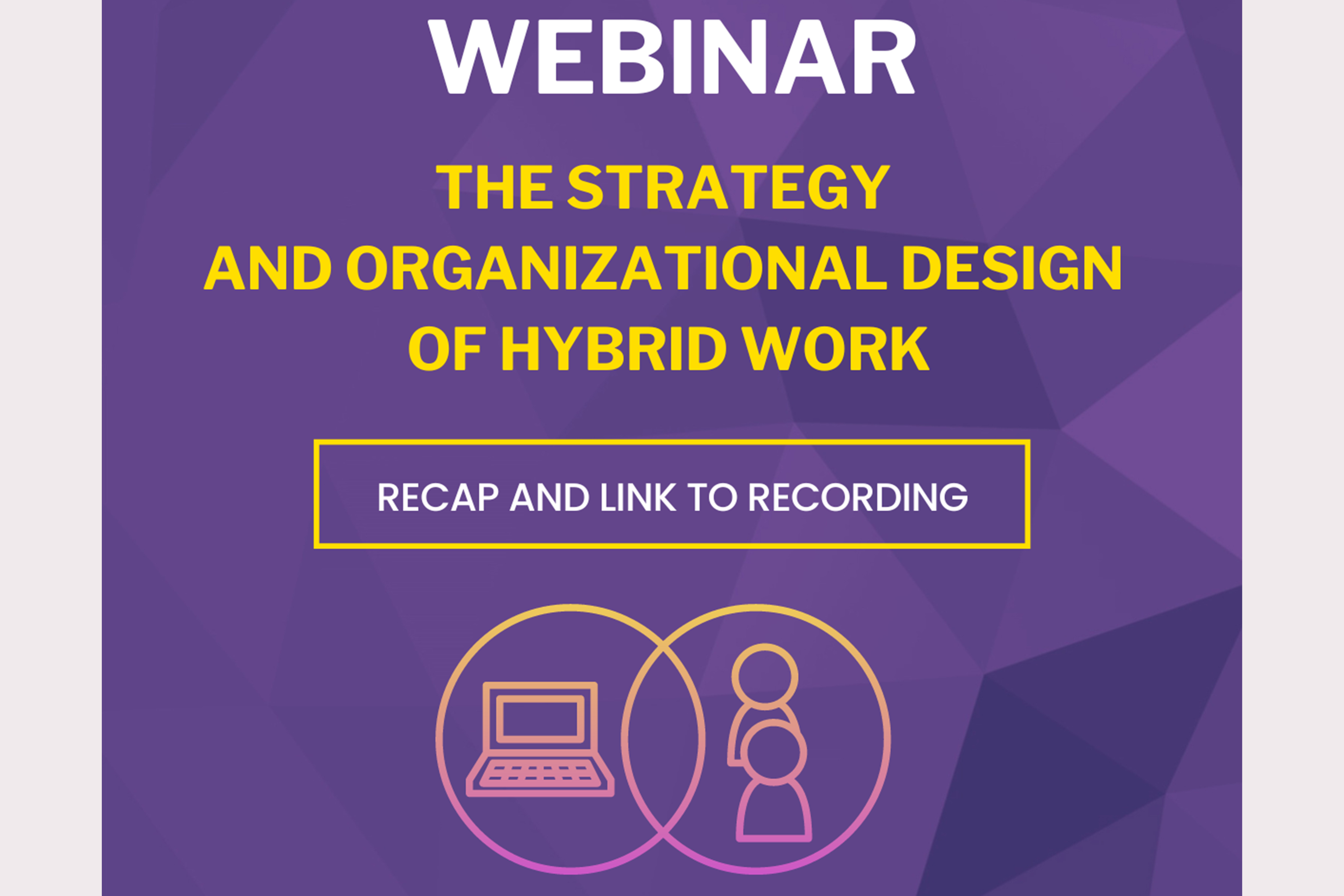Three Takeaways: MSLOC Faculty on Hybrid Work

The current and future state of hybrid work is certainly on the minds, agendas, and budget planning reports of leaders across industries and geographies. Members of Northwestern’s MS in Learning and Organizational Change faculty, who all work as organizational strategists and leaders in their full-time roles, gathered in early January 2023 to discuss “The Strategy and Organizational Design of Hybrid Work.” These scholar-practitioners provided advice to managers and leaders thinking about designing for the changes we see now, and anticipate later, in work arrangements.
Moderated by Ryan Smerek, PhD, panelists included BK Simerson, Ed.D., Lisa Tallman, and Keeley Sorokti, in conversation about how strategy impacts hybrid work decisions and the knowledge sharing implications of a diffused workforce. Access to the full panel discussion recording.
#1 Link Your Strategy to Your Work Plans
BK Simerson, co-author of Leading with Strategic Thinking, off the discussion by exploring two critical considerations that should underpin every strategy for organizational and work design. Simerson shared that “the nature of your business really makes a difference…in many organizations [in specific industries like manufacturing], it’s not a question. On an assembly line or production line, they have to be there in person.” For employees or whole organizations whose work does not require them to be onsite, leaders need to look at the customer value proposition to determine the design that best responds to what customers want and need. For example, says Simerson, “if you are an organization that’s striving to be customer intimate, then whatever approach would allow you and your colleagues… to anticipate [customer] needs and expectations and requirements even before they realize them… that's the approach that you need to take.”
#2 Align Decisions and Communications with Your Strategy
Tallman, a co-instructor for a course on Creating and Sharing Knowledge, also implored managers to consider their decisions and communications carefully to make sure they align with the organization’s strategy rather than its status quo. Tallman shared, “justifications like ‘we pay too much money for this office space, and therefore we need to use it so you need to come back to work,’ that is not strategic. It does not help with employee engagement and retention. When you do make these decisions, they should be based on your strategy [and] the individuals you serve.”
#3 Look at the Opportunities Distributed Work Presents, and Take Them
Keeley Sorokti, a co-instructor for the introductory course for Northwestern’s Designing Organizational Effectiveness Certificate, focused the discussion on the opportunities inherent in distributed work, including but not limited to increasing cognitive diversity, attracting new talent, and increasing equity. She talked about the attention leaders are paying to learning and organizational change issues as an opportunity to “be more intentional about executing on our strategy regardless of where people work.” Sorokti brought an example of that intentionality to life by encouraging participants to bring “a ‘working out loud’ mindset to your organization so that you can do asynchronous work efficiently and still get that serendipity that happens when you run into somebody in the office kitchen. Working out loud is essentially intentionally designing ways for people to narrate their work and to make their work visible.”
Northwestern’s School of Education and Social Policy is home to several programs that address organizational design and strategy, knowledge sharing, and change leadership, including the Master of Science in Learning & Organizational Change (MSLOC), Executive Learning and Organizational Change (ELOC), and the Designing for Organizational Effectiveness Certificate. Each of these helps leaders address the challenges we see in our new world of work. For more information, visit msloc.northwestern.edu and eloc.northwestern.edu.